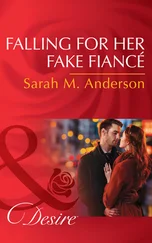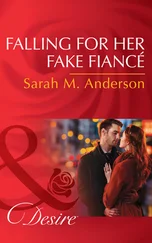There was no light to be seen upstairs or downstairs, either in the windows of Regina’s house or of the house next door. A thin white mist was creeping up from the river, obscuring the edges of things.
Julia’s ring at the doorbell produced no answer, no sound or sign of movement within.
We stood shivering on the narrow pavement, after all the urgency of our journey uncertain what to do next. Having somehow assumed, despite our fears, that we would find everything as usual and Regina, smiling and offering drinks, at the door to greet us, we had made no plans for any other contingency Perhaps, suggested Julia, we would be able to see something from the back of the house.
We followed her down a narrow passageway, feeling our way cautiously between rough stone walls, and emerged to find ourselves beside the gate leading into the churchyard. From here we could see that the windows at the back of the house were as dark as those at the front.
Ahead of us, however, on the far side of the churchyard, the darkness was broken by an angry copper-coloured glow.
“Julia” said Selena, “is that the Rectory?”
I saw now that the glow, which I had at first perceived as formless, had the outline of a large and imposing house, its windows blazing with orange and crimson light: if it were not a mirage, it must be the Rectory. One might perhaps have imagined that what we were seeing was merely the reflection in its windows of a more than usually spectacular sunset; but the sun, as I have said, had long since fallen below the horizon.
“Oh my God,” said Julia.
We began to run across the churchyard, none of us doubting, I think, that the Rectory was the scene of whatever catastrophe we had come in time or too late to avert.
The lamp above the doorway of the church barely served to show us the way between the gravestones, round which white skeins of mist wound shifting and deceptive spirals. We were running, as it seemed, in a world of darkness and silence, hearing hardly even our own footsteps on the soft grass and no other sound at all.
It occurred to me, as we drew nearer, that there was something more than natural about the silence. Should we not be hearing a hiss and crackle of flame, the crashing and tearing of timbers? Could any building burn without a sound? I became conscious also of the absence of smoke and heat.
It was Selena, outdistancing Julia and myself, who was the first to perceive the truth of the matter: it was not the Rectory that was burning — someone had lit a bonfire in the garden at the back.
But February is not the month for bonfires.
Standing outside the high uncurtained windows and gazing through the long black drawing room, we saw that the fire was still some sixty or seventy feet away, beyond the conservatory. It was a well-constructed bonfire, ten feet or more in height, built in the shape of a pyramid round a tall stake planted firmly in the ground, as bonfires were built in the days when their purpose was more serious and sinister than the destruction of a rag-filled effigy for the entertainment of children. The flames leapt up towards the starless sky, filling the room before us with a grotesque pavane of endlessly moving shadows.
Between the bonfire and the house a figure ran to and fro, assiduously nourishing the voracity of the flames. Distorted by the firelight, it seemed constantly to change in shape and size, to be sometimes something more, sometimes something less than human. Its face, however, when I saw it at last, was the beautiful, dangerous face of Terry Carver.
Pushing in despair or irrational optimism at the front door, Julia found that it was open, as if we had been expected.
21

THERE WERE FOUR PEOPLEin the long dark drawing room, silently watching the flickering light of the bonfire. On one of the black chaises longues, two young women sat hand in hand, one red-haired and of boyish appearance, the other fair, with a pleasing roundness of face and figure. On another, facing them, was a heavily built man with a handlebar moustache. Sitting next to him was Regina, who rose, smiling, and asked us what we would like to drink.
“You seem,” said Julia, “to be expecting us.”
“Yes, of course,” said her aunt. “I rang your Chambers to ask your advice about something and your Clerk said you were all on your way down here. He didn’t seem quite to know why, but I thought you must have guessed what we were doing and decided to come and help.”
“No,” said Julia. “Not exactly — what are you doing?” “Burning papers,” said Regina. “You know — the way they do in embassies.”
It had occurred to Ricky Farnham that morning that the inquest on Daphne might end in an open verdict, or even a verdict of murder; that the police, in that event, might think it their duty to examine in detail any letters and other documents to be found at the Rectory, in case these contained some clue to the identity of the culprit; that these would include any papers kept by Isabella for the purpose of her blackmailing business; and that distress and embarrassment might be caused by these finding their way into, as it were, the public domain. Having thought of this, he went round to High Street to talk to Regina.
Regina still had the key that Daphne had given her: once Ricky had explained the problem, they had gone round to the Rectory with the intention of removing anything which could prove embarrassing. They had been thwarted, however, by the volume of documents involved: there were several dozen boxes of files, all at a rapid glance containing material which might be compromising.
“So we decided to burn them,” said Regina, “and Griselda said she’d build a bonfire. But then it occurred to us that now Daphne’s dead everything at the Rectory belongs to Terry and perhaps we ought to tell him what we were doing. And I knew he was working at New Square this morning, so I rang up and explained it all to him and he said he’d come down.”
Regina explained these matters with the confident serenity of a high-principled woman who knows that she is doing the right thing; I did not believe for a moment that she was telling the entire truth. She could not have failed — indeed, it was clear that she had not failed — to see the possible relevance of Isabella’s files to the mystery of Daphne’s death: if she had agreed to destroy them, it must mean that to her the death was no longer mysterious. Either she knew for certain that it had not been murder — but I did not see how she could be certain of that — or, knowing that it was, nonetheless thought it right to protect the person responsible.
Looking from one to another of them, I wondered which of her friends she would think it right to protect, even if guilty of murder. The devoted Ricky? The impulsive Griselda? The gentle Mrs. Tyrrell?
But then at last the truth became clear to me and I knew that it was none of these.
“The letter,” I said. “You mustn’t burn the letter. There must have been a letter from Maurice — you haven’t burnt it?”
“Not yet,” said Regina. “We thought we ought to ask Julia whether anyone could say we were doing something illegal. That’s why I tried to ring her.”

Christmas Eve
Dear Daphne,
It may seem unkind, some may even think ungrateful, but I am going to kill you. You have left me with—
No, it would not be true to say that I have no choice. The alternative would be to kill myself. That indeed was my intention when I prepared the poison — it was for myself, not you, that I chose hemlock. I would not have chosen it for you.
Читать дальше














